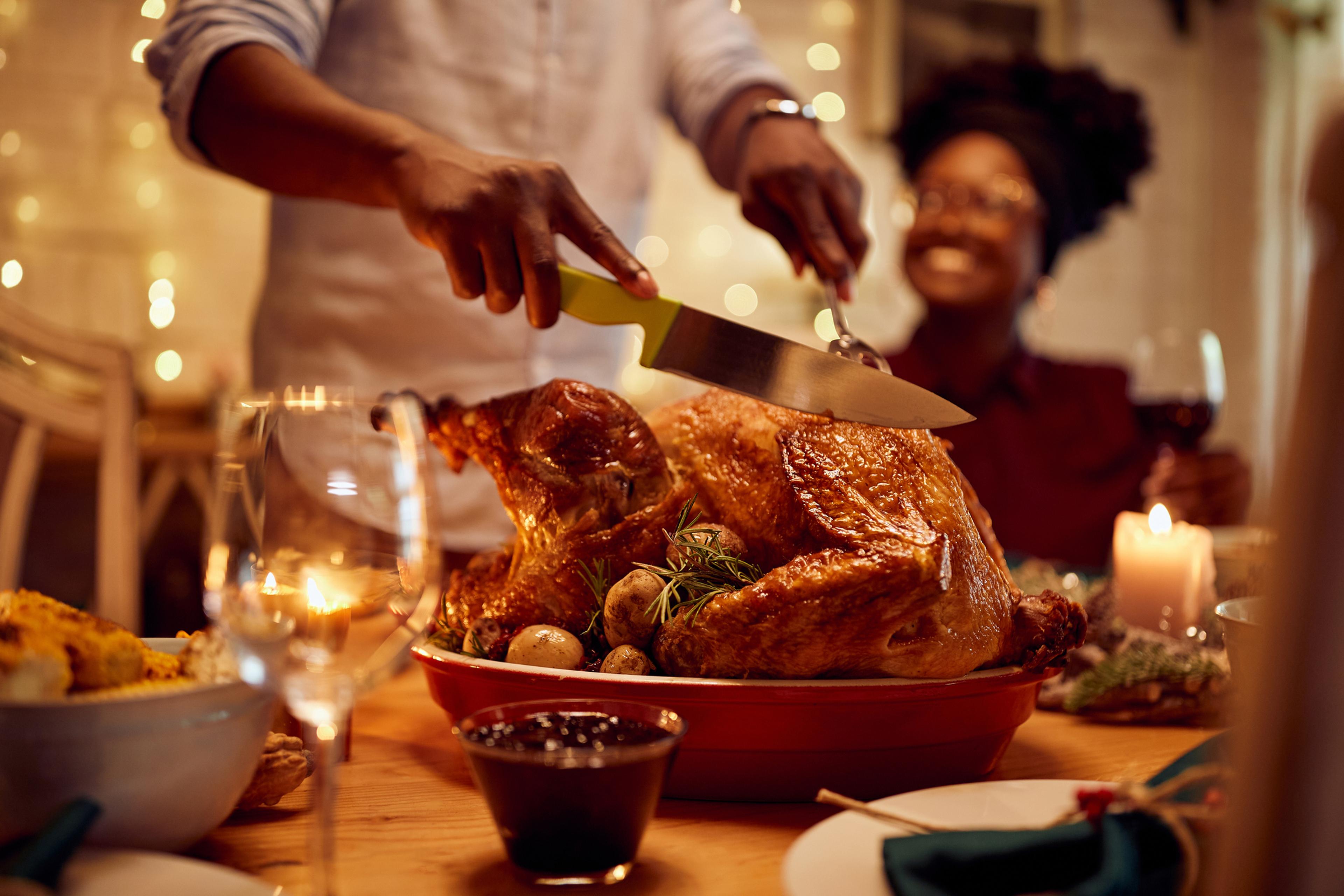Does Turkey Actually Make You Sleepy?

Lindsay Knake
| 3 min read

Thanksgiving means turkey, and turkey makes you sleepy, right?
Let’s take a look at the myth around turkey and the reasons you may want a nap after your Thanksgiving feast.
Where does the turkey myth come from?
Turkey contains tryptophan, which is what you may have heard is the reason you’re sleepy after a large holiday meal. Tryptophan is an essential amino acid in protein-rich foods that helps your body make protein, melatonin and serotonin. Serotonin is a neurotransmitter that helps you regulate your mood, digestion and the quality of your sleep. Melatonin is a hormone that helps regulate the sleep-wake cycle. Your body doesn’t produce essential amino acids like tryptophan, which means you have to get them through food for your health. While tryptophan is necessary for your sleep, it’s unlikely to make you immediately sleepy, according to the Sleep Foundation.
While turkey is a good source of tryptophan, a serving or two at your meal doesn’t contain enough of the amino acid to make you sleepy. A typical 4-ounce serving of turkey contains 285 milligrams of tryptophan. A common dose of tryptophan as a sleep supplement is 2 grams, which means you’d have to eat more than 7 servings of turkey in a sitting to get that much of the amino acid.
Tryptophan, which you need to eat year-round, is also in beef, chicken, fish and seafood, oats and quinoa, beans, cheese and yogurt, according to WebMD. A 3-ounce serving of pork or beef or a cup of quinoa has more tryptophan than a 3-ounce serving of turkey.
If it’s not the turkey, why do you feel tired after the meal? That’s the quantity of food, including the amount of fats and carbohydrates you ate during the Thanksgiving feast. Eating a large meal with a lot of carbohydrates like mashed potatoes and stuffing can make you feel sleepy, according to the Sleep Foundation.
It can take up to 30 minutes for the brain to register you’re full, but it can take less than 20 minutes to eat a large holiday meal. After you eat, your brain signals the parasympathetic nervous system that it’s time to rest and digest your meal. This can make you feel relaxed.
How to avoid getting sleepy after a Thanksgiving meal
It’s possible to enjoy your Thanksgiving meal and not get quite so sleepy:
Eat smaller portions.
When you fill your plate, start with smaller portions. You can feel tempted to clear your entire plate, but having less food means you can still eat everything without overdoing it. As a bonus, you’ll have more leftovers to enjoy later.
Don’t drink alcohol.
Alcohol is a sedative and can make you feel sleepy. A glass of wine with a meal may sound celebratory, but it will disrupt your sleep later on. A glass of water, on the other hand, does neither. Dehydration can make you feel fatigued, so be sure to drink plenty of water on the holiday.
Eat mindfully.
Practice eating slowly and mindfully, savoring each bite rather than eating quickly. Your brain will realize you’re full and you’ll remain comfortable instead of stuffed.
Go for a post-meal walk.
Getting outside for fresh air and gentle movement can help you feel more energized after a big meal.
Take a nap.
Whether or not you do overindulge, you still might feel a little sleepy after the hustle and bustle of the day. If you are tired after the meal, relax on the couch or take a nap. It is a holiday, after all.
Image: Getty Images
Related:





